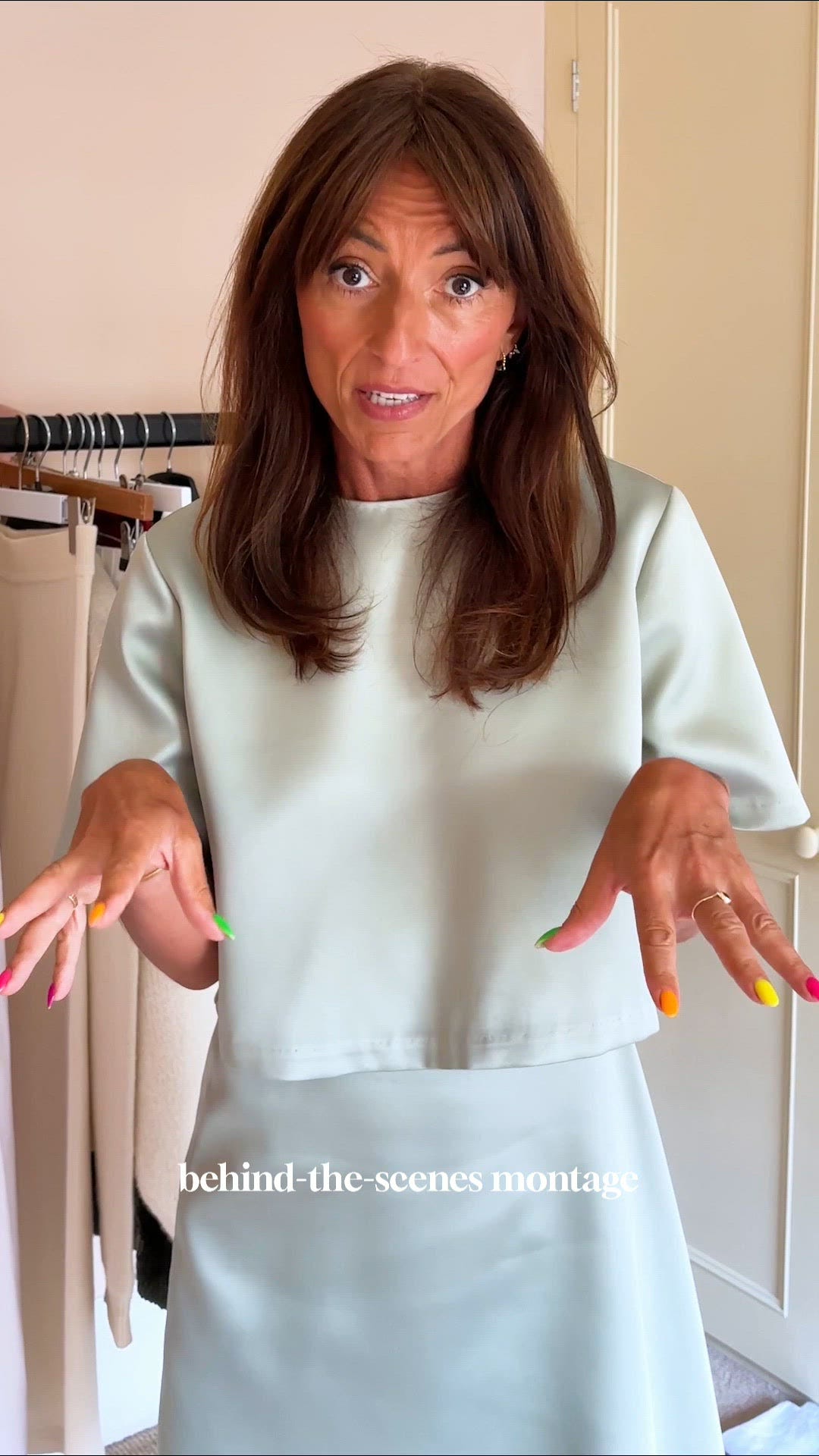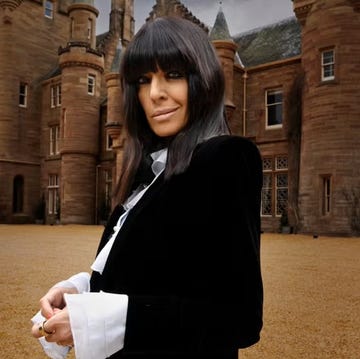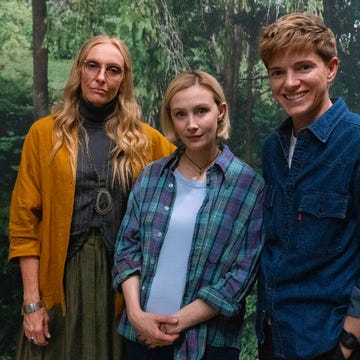Melinda French Gates, accomplished computer scientist and world-renowned philanthropist, likes washing up. “I like to do the dishes because you get it done and then the kitchen is neat and tidy. I like that sort of tidiness,” she says.
We’re speaking on a video call – Microsoft Teams, of course – to mark the publication of her new book, The Next Day. It’s somewhere between a self-help book and a biography. A collection of anecdotes, gentle life lessons and words of wisdom gathered by Melinda over an extraordinary life, which took her from a ‘normal, very middle-class family’ to the top of the world’s largest computer software company – and, ultimately, to becoming not only one of the wealthiest women in the world, but one of the most influential philanthropists, too.
The book, like our conversation, interweaves deeply personal, private reflections with grand, global observations. Stories of her major life transitions – from starting college to losing a friend to becoming a mother – prompt earnest advice from a woman who, at 60 years old, appears to me to be genuinely happy but far from content. Melinda French Gates, as she’s now known post-divorce, has more to do. A lot more.
What to read next
Melinda divorced from billionaire Microsoft founder Bill – her husband of 27 years, with whom she shares three grown-up children, Jennifer, Rory and Phoebe – in 2021. She initiated the separation and pulls no punches in the book about how painful the process was. "I once told Bill that marriage is like a beautiful crystal bowl, each person holding up one side. Together, over the course of that marriage, you fill that bowl with all sorts of priceless things – all your memories and experiences," she writes.
"When he let go of his side of our bowl, I told him I couldn’t hold it up alone. The whole thing came crashing down, leaving me crouched on the ground, picking up shards, wondering if any of the things we held between us were ever real."
In summer 2020, several months after their initial separation, Melinda went to visit Bill at the house where he was staying to tell him she wanted a divorce. The next day, she went back again to discuss with him how they’d tell their children. Once the formalities were done, they drove together to get a takeaway burger. It’s an affecting, emotional scene in the book that captures the deep-down comfort of relationships that have endured, even as they’re finally breaking apart.
When I ask what advice Melinda would give to women contemplating the end of a long-term relationship, it’s clear that she’s now in a different place emotionally. "I would say it’s hard. But guess what? There’s growth in it for you as an individual. And you’re going to be amazed at your resilience when you come out the other side." Bill, on the other hand, told The Sunday Times in January this year that the divorce was "the mistake I most regret".
But Melinda is in no mood for self-indulgent emotion. "When stuck in doubt, what you have to do is lean forward and say, okay, who am I going to reach out to that might be helpful? What author can I go read?" She’s hoping that, with her new book, she might be one of those authors who can help.
She’s not kidding herself, however, that it’s ever going to be easy – for any of us. Melinda is an optimist, but she isn’t daft. "Nobody needs a book right now that makes us more anxious, right? Let’s also not forget that society puts a lot of things on women. There are lots of societal messages that women get that cause us to doubt ourselves."
Some people have sneered at the book, deeming Melinda’s experiences and advice as invalid on account of her privileged lifestyle. Fair enough. But Melinda is the first to acknowledge that privilege. It’s worth remembering that Melinda wasn’t always super rich. She joined Microsoft as a product manager in 1987 and was part of the team who turned the then-small company into the tech juggernaut it is today.
"I think so much about my childhood, which was so normal," she says. Melinda grew up as one of four in Dallas. Her father worked for NASA, and she credits him – largely – for championing her ambition, her intellect and getting her interested in computers. "My parents wanted us to go to university, which was fantastic for me. But they were also going to take on the debt – that was hard."
My sense is that Melinda’s awareness of – and perhaps even unease with – her privilege is part of her motivation. "I’m wildly ambitious about getting women to the rightful place in society,’ she explains. After the divorce, she stepped down from the Bill & Melinda Gates Foundation – the fund the pair famously founded in 2000 in order to give away their fortune – and instead focused on her own philanthropic organisation, Pivotal Ventures.
"When I came out of the foundation, within 60 days I announced a billion dollars for women and girls," she says. It’s hard to imagine having access to that kind of wealth – or the responsibility that comes with it.
Why women and girls? "I worry about the fact that my two granddaughters have fewer rights in my country than I did when I was growing up." Melinda explains that her new venture donates around 70% of its funding to US projects, with an ambition to do more globally in future. "I was on a learning trip recently about maternal mortality, because our statistics in the US are the worst for any high-income country in the world – that just shouldn’t be."
Her ambition for the fund is sky-high, and seeing major impact isn’t going to happen quickly. "It’ll take my lifetime," she says, smiling. Make no mistake, being a good philanthropist is a proper job. Like the Gates Foundation before it, Melinda’s fund is engaged in structural change, not short-term handouts. Melinda and her team know how the system works and how to affect it. "When women get into state legislatures and we do some of the training and make sure their campaigns are started and funded, they know good policy when they see it," she says.
"When women lead and control state resources, they move money in different ways because they have a different lens on society. They might see the maternal mortality problem in their state and say, 'No, no, no, we need to be doing more.'"
Melinda is easy to talk to. She listens intently to my questions, taking a moment after each one before answering in a calm, clear tone. She’s playful, too, with an easy laugh. For someone so accomplished, so wealthy, Melinda is disarmingly ordinary. She has time for friends, she says, because, "I make time – you have to put drops in the bucket – so I have long-term friends and newer friends that I met when my kids were in high school. You know who your trusted people are when you’re working through something hard – and boy, do I cultivate."
She’s obviously enjoying being a hands-on nonna to her granddaughters, aged two and six months, too. "The two-year-old just takes me all over the yard and she’s insistent: if she’s going down the slide, Nonna’s going down the slide, too.
"You gotta do a lot of the normal, ordinary things, versus having it all done for you, right? Otherwise, you lose something in life." Having established that she likes washing up, I ask her what chore she’d be happy to lose. "My least favourite is so easy: bathing my dog, Nilla," she says. "But she needs it once a week, so we do it."
The Next Day (Pan Macmillan) by Melinda French Gates is out on 15th April. You can purchase it here.















